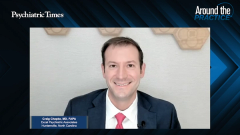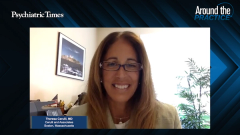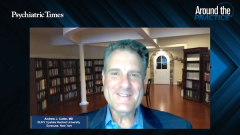
Patient Case #1: Prompting an ADHD Consultation
Stephen Faraone, PhD; Theresa Cerulli, MD; Craig Chepke, MD, FAPA; and Andrew J. Cutler, MD, discuss factors which prompt adults for an ADHD consultation.
Episodes in this series

Stephen Faraone, PhD: Based on your experience, let's start with Dr Cerulli. What prompts the patient for an ADHD consultation?
Theresa Cerulli, MD: If we're talking about an adult with ADHD, interestingly I would say the number one phrase I hear from the adult patient is, I'm feeling overwhelmed. They're often coming in with what sounds like an anxiety symptom, they're overwhelmed is what they're saying. I can no longer manage my the demands of my day, they're struggling often as you already described Steve with executive functioning problems and they're not keeping up with organizing the material, the tasks, they're procrastinating, they're avoiding, they are feeling like they've taken a hit to their self-esteem. They're feeling like they're failing at school, at work, and often in their personal lives at home with their family members. Being overwhelmed is the number one word I had if I had to describe it, they're not coming in necessarily saying I'm having trouble with attention.
Stephen Faraone, PhD: Right, that is an extremely good point. One of the interesting points with this patient is that he feared being put on medication, he wouldn't see a psychiatrist, or wouldn't see his PCP for medication. Dr Chepke do you have any experience with patients like that and what do you do in those cases?
Craig Chepke, MD, FAPA: There are so many people who come in, just so many years after I wish they would have, because there could have been such a difference made in their life. This is a twofold answer of how we can try and combat that, first more screening for ADHD. Not if we're seeing adults and not just, as in terms of psychiatrist, or other psychiatric providers, but primary care providers in every field of medicine. We need to stop thinking this is an illness only in childhood, and screen adults fairly routinely for ADHD, and then also on a related note reducing the stigma, because that can prevent many people from seeking treatment. They almost rather feel like they're a screw up or lazy, then that they have ADHD, because then there's something medically wrong with them on top of it. We need to work on both of those aspects, but when those people come in, I just tried to work with them on, let's try and get you to a point where you're not as Theresa said perfect word so overwhelmed, because that's what gets them in. I mean, they're always procrastinating, they're under the 8 ball, of course they're anxious, they didn't achieve what they wanted to in relationships in life. Of course, they're feeling depressed, and having them being able to move from that space, to where they can try to function at their greatest potential is just such a rewarding type of practice for me.
Stephen Faraone, PhD: That's great. I really love your point about screening, because so many primary care people and psychiatrists don't screen their patients for ADHD. And it's very easy, I mean, when Adler and Ron Kessler put together a screening instrument, 6 questions patients can use it at adhdinadults.com, which I send what's on my website for training people about adult ADHD. It's very simple to do, it takes very little time, and has pretty good sensitivity and specificity. Screening is a must, I would say in primary care and especially care for ADHD.
Andrew Cutler, MD: Steve are you listening to the ASRS, the adult?
Stephen Faraone, PhD: I'm referring to the ASRS yes, that's exactly, that's exactly what it is.
Andrew Cutler, MD: And especially, because very often, as we've said, these adults present with a comorbidity first the depression or anxiety, we should be vigilant to screen our depressed and anxious patients, especially if they haven't responded to our first line of appropriate treatment. You know, I have a very good friend. Many of you may know Dr Michael Phelps, who likes to call us an over under disease. People are overwhelmed and they're underachieved. And that says it very well, and I like to say with adults their 2 biggest enemies are time and money. They have so much trouble managing time and money and that's when they get into trouble. I'd like to also give you another way of thinking about this, of course people present in situations like this, and I agree this case is very common. And they often present when things are going bad. But I've seen another presentation with adults, often they present to me when something good happens in their life, or something that most of us would consider to be good. They're compensating, they're doing fine, but now they have a second child, so now they have more to manage. Or they get a promotion at work, and now all of a sudden, they have to manage people, and they have more cognitive demand or they want to go back to school and further their education or their career, get a certification. That's another situation too, that you might look for, where somebody has sort of compensated and now all of a sudden, the wheels have fallen off.
Stephen Faraone, Phd: That's a great point Andrew, because ADHD and it's important for people to understand, ADHD is an interaction between the ability of one's brain to handle the demands for self-regulation, and the magnitude of the demands placed by the environment. And when those demands increase it doesn't matter if it's something good like a child or a new a new job, those demands increase ADHD will emerge.
Transcript edited for clarity
Newsletter
Receive trusted psychiatric news, expert analysis, and clinical insights — subscribe today to support your practice and your patients.












